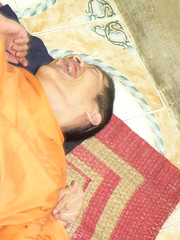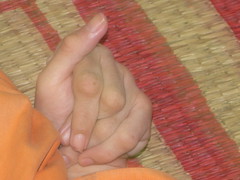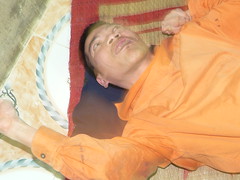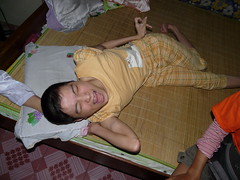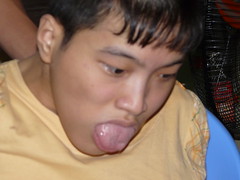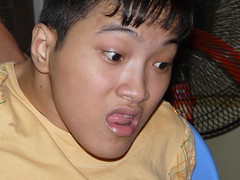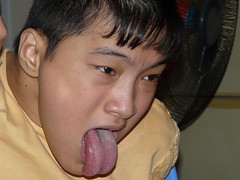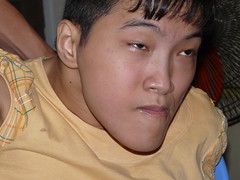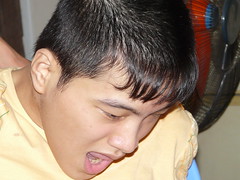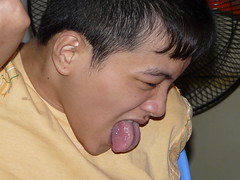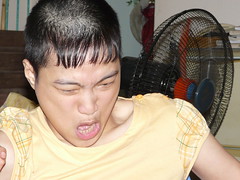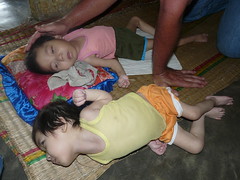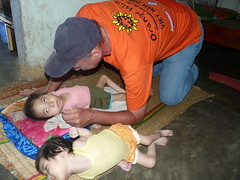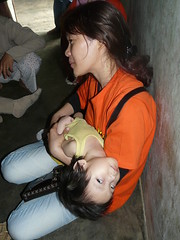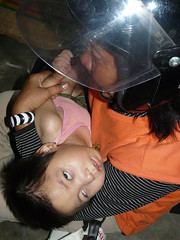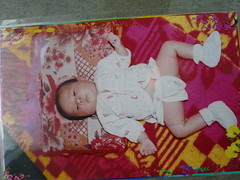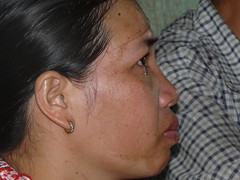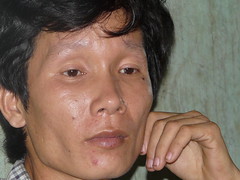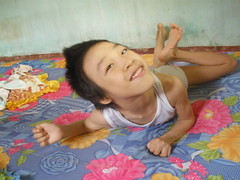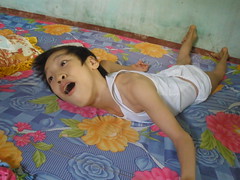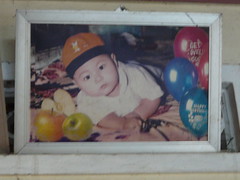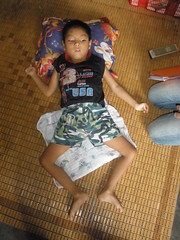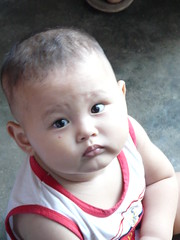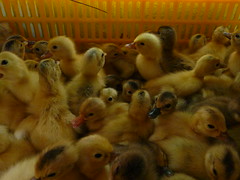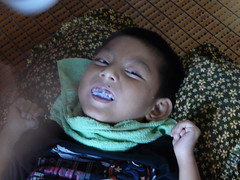
Tien is five years old. During his first four years he has had 3 operations to relieve his condition which is called lymphangioma or cystic hygroma. The condition is a lymphatic malformation, a benign proliferation of lymph vessels that interferes with proper functioning of the lymph system and results in the swelling of the left side of his face and jaw. After each surgery, the scars from which are clear on his little head, the surgeon has penned “Likely to recur”. It has recurred each time, usually within a couple of months. The surgeries cost the family several hundred dollars each and are devastating to family finances.
We met him in October while interviewing families for our Small Economic Grants program. Tien is bright and playful. When he is feeling well, he attends a regular day care center while his mom, Mai, goes to work as a nail technician in a beauty shop. He captured our hearts when Mai told us he looked in the mirror and asked her “Why aren’t I handsome like the other children?”
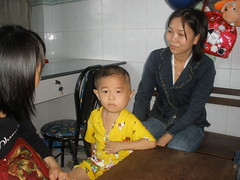
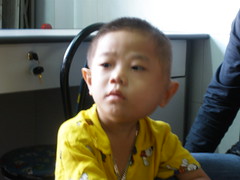
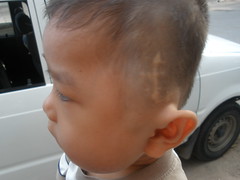
Mai and Tien when we met the in October. Scars from unsuccessful surgeries are obvious.
In December, Mai called Salem and said that Tien was suffering alternating night sweats and chills and increased swelling of his face. The three of them took a 12 hour train ride to Saigon to visit the hospital and seek help, only to be told by the doctors, “Go home. I won’t see you now. Come back in June (the anniversary of the last surgery).” With the help of Vietnamese friends we got the attention of doctors at another hospital where we were able to pay for MRIs and CT scans, but no treatment was available.
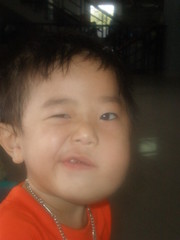
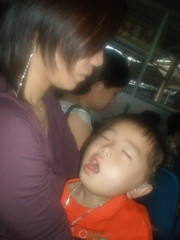
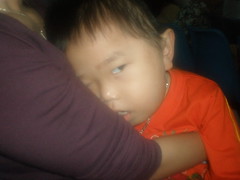
In December, in a Saigon hospital waiting all day for his number to be called.
In February, Mai called to say that Tien’s “tumors” had “slipped” and that he had new swellings under his chin. He was also suffering what local doctors called “bronchitis”, but they wouldn’t treat him because they didn’t have any understanding of his underlying condition. We again paid for train tickets for Tien and Mai to go to Saigon, this time at least with a referral, but the doctors again said that they couldn’t operate on Tien until summer when his last surgery will have completely healed and his neck muscles more fully developed. They also indicated that the surgery would probably not be successful.
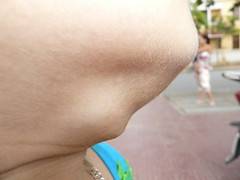
Tien's "pig food" appeared in February.
In March, Mai alerted us to the fact that new swellings had appeared behind Tien’s left ear. In February, she had told Tien that the doctors would take away the tumors on his chin and feed them to the pigs. I won’t pass judgment on that bit of parenting, but when Tien spoke to his dad on the phone about his latest swelling, he told him “Daddy, I have more food for the pigs.” Tien’s dad is a really devoted father and husband, who must live several hours away in order to earn enough money on construction to support his family. Now, in addition to sleep problems, Tien has difficulty swallowing and is losing weight and failing to grow at a time in life when he should be shooting up.
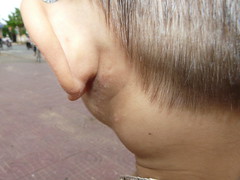
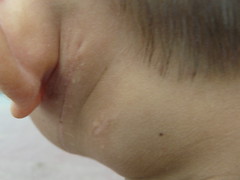
In March, a new swelling appeared behind his ear.
Now, I didn’t write this blog just to introduce you to this sweet little boy and his family. In searching the internet for possible alternative treatments for Tien, I came across repeated references to treatment of cystic hygroma at some US hospitals (particularly Children’s hospitals in Houston and Cincinnati) by means of sclerotherapy, which involves guided injection of caustic substances into blood vessels basically to shut off improperly functioning branches. It is used for a wide range of maladies including (on myself) varicose veins.
I am writing to see if any of you has an appropriate medical contact who might be willing to review Tien’s records and pictures and provide an opinion as to whether sclerotherapy might be appropriate for his case or if they have another idea other than the ineffective surgery he is likely to receive again this summer in Saigon. His complete records are available on CD in Vietnam and the US and can be sent anywhere. Please let me emphasize that I am not looking for someone to take on the case, although we certainly would welcome that. I know a doctor might be reluctant to “diagnose” without seeing the patient personally, but we would be very interested in learning if we are even on the right track. If so, several avenues might open up:
1. Finding an institution in the US willing to take on his case
2. Finding a hospital in Asia that could perform the procedure affordably
3. Bringing a doctor here from the States to perform the procedure and possibly engage in some other activities during the trip such as training seminars or other medical cases.
Please consider if you have any acquaintances or connections in the medical community who might be willing to look at Tien’s case. If so, we will send out the CD immediately. Each time we meet her, Mai tearfully asks "Please help Tien." I pass her request along to you.
Post script: After meeting the family, Thinking Beyond Borders, an organization leading North American student groups on overseas study tours, donated 10 million Vietnamese dong ($600) to Mai so she can open her own beauty practice and improve the family’s standard of living. Orangehelpers is holding the money while Mai goes through additional training in areas such as wedding makeup.










